#chinese vocabulary
Text
chinese art compliments/replies
as a follow up to my post on online drawing vocab, here is a collection of comments you can use to compliment others' art :-)
the basics
喜欢 [xǐhuān] - i like it
好好看 [hǎohǎo kàn] - looks good
厉害 [lìhài] - amazing
好漂亮/帥/美 [piàoliang/shuài/měi] - so pretty/handsome/beautiful
太有才了 [tài yǒu cáile] - so talented
(similarily, 画画天才 => drawing genius)
好神 [hǎo shén] - godly
神迹 [shén jī] - miraculous
仙品 [xiān pǐn] - high-quality product
好鮮活 [xiān huó] - vivid/lifelike
it’s cute
可爱晕了 [kě'ài yūnle] - so cute i fainted
可爱死了 [kě'ài sǐle] - so cute I died
可爱鼠了 [kě'ài shǔle] - so cute I died (in a cutesy/meme way)
卡瓦 [kǎ wǎ] - kawaii
好米 [hǎo mǐ] - so cute/beautiful
太萌了 [tài méngle] - so adorable (originating from japanese word moe - 萌え, lots of different meanings, but mostly refers to happiness you feel when you see something really cute), can be used like 萌到我了/被萌晕/心被萌化了
basically any XX死了/XX暈了/XX炸了 comment works
expletives
我去 [wǒ qù] - damn
卧槽/我草/wc [wò cāo] - censored vers of 我操 => oh fuck
牛逼 [niú bī] - (fucking) awesome, usually just use 牛
exclamatives
哇/哇塞 [wasāi] - wow
啊啊啊啊 - aaaaaa
哇啊啊啊 - wahhhh
responding to compliments
被老師跨了,能力暴增 [kuà...bào zēng] - (if responding to commenter who's also an artist) compliments from teacher make my ability surge
爱您主人 - love u op (主人 refers to original commenter), can also just use 愛你
嘿嘿谢谢喜欢 - hehe ty for liking
比心 [bǐ xīn]- finger heart
送愛 [sòng ài] - sending love
亲亲 [qīn qīn] - kiss kiss
questions
可以当头像吗 [tóuxiàng] - can I make it my pfp
可以自印吗 [zì yìn] - can I print it out
可以收集吗 [shōují] - can I save it
求原图 [qiú yuán tú] - original image pls
这么时候接稿 [jiē gǎo]- when will you open commissions
misc.
抱走/拿走 [bào/ná zǒu] - carrying/taking it away
蹲蹲 [dūn dūn] - if someone has posted a WIP, waiting (for the finished piece/shop listing), direct trans. = squatting
#chinese#mandarin#chinese language#studyblr#langblr#chinese langblr#mandarin langblr#chinese vocabulary#tunastudies
309 notes
·
View notes
Text
The 然's
突然,虽然,忽然. and the other 然's can often get mixed up, so here's a quick explanation of some of the most common ones!
突然 (Túrán): This means suddenly or unexpectedly
居然 (Jūrán): This kind of means suddenly, but more in the sense of "surprisingly" or to suggest disbelief at something that happened.
忽然 (Hūrán): This also means suddenly or unexpectedly, but it has a more stronger connotation.
既然 (Jìrán): This is a conjunction meaning "since" or "now that"
既然the weather is great, let's go out!
既然 you aren't busy, let's go watch a movie.
不然 (Bùrán): This means "otherwise" or "or else";
You should study, 不然 you won't do well on the exam.
虽然 (Suīrán): This means although or even though.
虽然 I'm not good at singing, I still like to go to the karaoke.
当然 (Dāngrán): 当然 means certainly or definitely and can be used as a reply:
Can you help me with A? 当然!
自然 (Zìrán): This can mean nature or naturally.
China's 自然 is very beautiful.
She speaks Chinese 得很自然.
仍然 (Réngrán): This can mean "still" or "yet".
I仍然 haven't read that book.
依然 (Yīrán): Similar to 仍然, this also means still" or "yet" but it's usually used in more formal and literary works, whereas 仍然 is more often used in spoken language.
果然 (Guǒrán): 果然 can be used to mean "indeed" or "as expected"
This movie is 果然 interesting.
竟然 (Jìngrán): This is an adverb used to suggest surprise or something unexpected.
He竟然forgot her birthday.
显然 (Xiǎnrán): This means "clearly" or "obviously".
This soup 显然 hot.
偶然 (Ǒurán): This means "accidentally" or "by chance".
We 偶然 met at the same cafe.
How many other 然's do you know about? Drop a comment!
#slavic roots western mind#student life#student#study blog#college#college life#travel blog#aesthetic#studyblr#study motivation#chinese#china#study in china#life in china#learn chinese#chinese grammar#grammar#vocabulary#chinese vocabulary#chinese verbs#verbs#verb#chinese studyblr#mandarin langblr#mandarin#mandarin chinese#chinese language#language learning#chinese langblr#language resources
62 notes
·
View notes
Text
Can someone explain to me, are alternatively link me to a grammar resource that explains the difference in usage between:
什么都不/没
什么也不/没
一点都不/没
一点也不/没
I've seen all of these pop up as various ways of expressing "not at all." I'm mostly confused about when to use 也 vs 都.
ETA:
Okay, based on the responses I've received, I think there's some major confusion regarding what kind of explanation I'm asking for in this post.
I am NOT asking about the general differences between 也 vs 都.
I am also NOT asking about the general differences between 不 vs 没.
I am asking about the 4 phrases I listed. The SPECIFIC 4 phrases that I listed:
什么都不/没 i.e. 我什么都不知道 - I don't know anything at all
什么也不/没 i.e. 我什么也没干 - I didn't do anything at all
一点都不/没 i.e. 这对他一点都不好 - This is not good for him at all.
一点也不/没 i.e. 我一点也没生气 - I am not angry at all.
I am ONLY asking how to differentiate between these 4 phrases, and these 4 phrases alone. All of them seem to mean basically the same thing, so I'm asking how I pick between them when trying to express the concept of "not at all."
That's it.
#chinese langblr#chinese vocabulary#chinese grammar#mandarinblr#I was doing french->chinese translation exercises in an app and all of these phrases were translations for “ne...pas...du tout"#with no way for me to determine why one translation was chosen over another for a given sentence
85 notes
·
View notes
Text
Word (of Honor) of the day:
善 shàn - good, virtuous
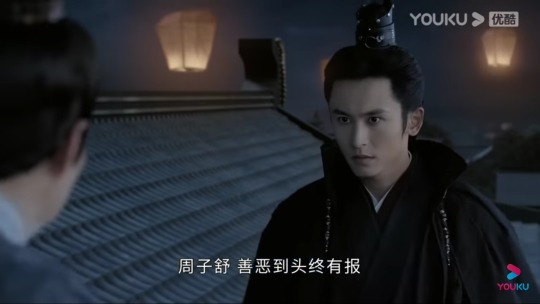
(episode 1)
善恶 shàn'è - good and evil
到头 dàotóu - to/at the end
报 bào - reward, retribution
善恶到头终有报 shàn'è dàotóu zhōng yǒu bào - Good and evil will be rewarded in the end; you'll get what you deserve


(episode 1)
ZZS calls Gu Xiang 小善人 after she gives him wine.
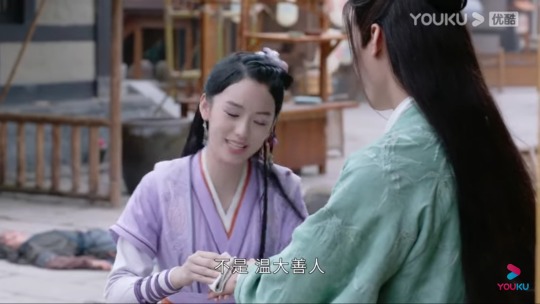
(episode 4)
温大善人, "Philanthropist Wen"
#it's so nice to learn a new word and then see it over and over again in the media you're enjoying!#langblr#WoH#Word of Honor#山河令#shl#chinese language#chinese vocabulary#chinese langblr#中文#cdrama
84 notes
·
View notes
Text
Speak DECENT CHINESE in 4 months - 8 easy tips
______
1. Have someone to guide you to get good pronunciation habits. It is almost impossible to re-learn bad habits later so make sure you get your pronunciation right from the beginning. I mean the pronunciation of the sounds, not the tones. Tones take more time to get used to and you can't rush it - but try the best you can. Some tutors don't bother too much about the pronunciation so make sure you find someone who is strict about that, you will be grateful later. Also get confident in pinyin, you will need it.
2. Understand the composition of the sentences. The word order is super easy and it stays the same all the time (the question and informative sentences have the same word order). I have a formula for the word order but I won't reveal it here, it is one of the secrets I keep for my students and people who use my materials.
3. Understand that there are no tenses in the sense we think about them in English and other languages. Learn to express future, potential future, finished action, change of state, experience in the past and circumstances of the event. See the difference between action verbs and verbs of state.
4. Learn to use modal verbs and conjuctions.
5. Build usable vocabulary based on the fact that everything in Chinese is interconnected.
6. Understand 就, 才,的 and 得
7. Don't learn grammar rules and words separately. Learn functional practical sentences that will serve you as examples of the grammar structures (then you just need to change the words in these sentences).
8. Develop your listening skills - that is very important. For that there are Youtube channels and podcasts on Spotify (and in my materials the audio part also plays an important role). You can listen to Chinese radio stations just to get the feeling of the language.
______
After 3-4 months you should feel pretty confident in normal conversations if you study regularly under competent guidance.
______
R-evolutionary learning materials and resources: https://linktr.ee/chineseffect
MAGIC PLAYBOOK for beginners
#learn chinese#learn mandarin#chinese langblr#mandarin langblr#edublr#mandarin#chinese#mandarin edublr#langblr#chinese vocabulary#mandarin chinese#chinese edublr#learning mandarin#learning chinese#study chinese#mandarin vocabulary#study mandarin#汉语#chinese studyblr#beginners chinese#chinese for beginners#learning tips#chinese tips#mandarin tips
241 notes
·
View notes
Text
i'm back to properly studying Chinese with a friend so i'll upload weekly vocabulary lists from the lessons we're viewing ☺️
Vocabulary from Boya Chinese, Lesson 1 (Part 1)
商场(商場)shǎngchǎng, store, department store
她周末喜欢去逛商场。/ 她週末喜歡去逛商場。
逛 guàng, stroll, roam
吃素 chīsù, to be a vegetarian
他天天吃素,身体却很好。/ 他天天吃素,身體卻很好。
却 què, but, yet
不仅(不僅)bùjǐn, not only
素菜 sùcài, vegetable dish
!! not to mix up with 蔬菜 shūcài, vegetable !!
他点了两个素菜。/ 他點了兩個素菜。
做法 zuòfǎ, way of doing or making things; practice
做法很多
做法很简单/做法很簡單
茄子 qiézi, eggplant
一连(一連)yìlián, in succession, in a row
来中国以后,他在房间里一连睡了三天。/來中國以後,他在房間睡了三天。
一连好几星期,他都没有跟家里人联系。/一連好幾星期,他都沒有跟家人聯繫。
空 kòng, spare time
有空/没空/抽空
抽 chōu, to take (a part from a whole)
Other:
习惯(習慣)xíguàn, used to
打算 dǎsuan, plan, intend
放假 fàngjià, to have a holiday or vacation
祝你愉快 zhùnǐyúkuài, Have a good one, Have a great day, Best regards
65 notes
·
View notes
Text
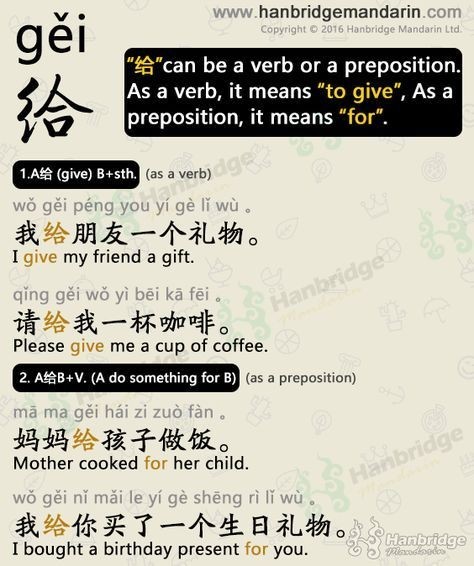
Guys, I swear the source website of this picture had helped me out so much both when I started learning chinese and now!
Link:
I don't usually recommend pinterest to find useful websites but I did find this website there somehow lol. Istg half the links of pinterest are unavailable or something.
#langblr#chinese langblr#mandarin langblr#mandarinblr#chineselangblr#chinese vocab#mandarin vocab#chinese vocabulary#chinese language#chinese studyblr#mandarin vocabulary#mandarin chinese#mandarin studyblr#mandarin#learn chinese#study chinese#chinese study#learn mandarin#study mandarin#learning mandarin#studying mandarin#langblog#language learning#languageblr#learning languages#zhongwen
201 notes
·
View notes
Text

today's vocabulary : 洗衣粉 [xǐ yī fěn]
#language#studyblr#langblr#chinese langblr#chinese studyblr#mandarin#learn mandarin#中文#汉语#chinese vocabulary#study chinese#chinese characters#mandarin chinese#studying chinese#china
24 notes
·
View notes
Text
New favorite word alert: 目送

Obviously this concept can be expressed in English, but I find it so cool that Chinese has a dedicated word for it. Now I will feel less awkward as I stare at my guests’ backs as they depart. It’s an integral part of being a host imo.
#pleco#this app is called pleco fyi (some ppl have asked)#chinese#chinese language#mandarin#mandarin chinese#language learning#langblr#learn chinese#learn mandarin#studyblr#chinese vocabulary
130 notes
·
View notes
Text
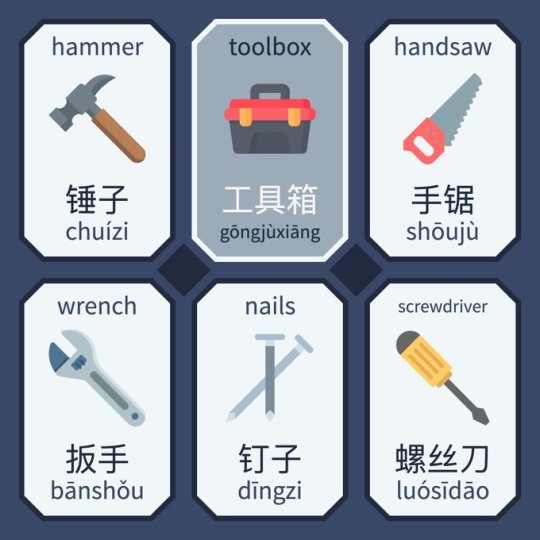
🎓 Learn Chinese Online | Learn Mandarin | Chinese Vocabularies
#learn chinese#mandarin#belajar bahasa mandarin#belajar bahasa mandarin pemula#belajar mandarin#chinese language#education#language learning#learn chinese online#tumblr#tumblr today#today on tumblr#usa today#learning#vocabulary learning#vocabulary#chinese vocabulary
9 notes
·
View notes
Text
Places In Chinese

大学 - dà xué - university
学院 - xué yuàn - institution,college
医院 - yī yuàn - hospital
图书馆 - tú shū guǎn - library
银行 - yín háng - bank
学校 - xué xiào - school
商店 - shàng diàn - store
酒店 - jiǔ diàn - hotel
14 notes
·
View notes
Text
今日學的詞 [Daily Vocab]
想把日常新詞寫下來;今天看完骨科跟爸爸去咖啡店,點了一杯 「金銀花拿鐵」 (用茉莉花茶,蜂蜜,和葉子奶做的)和番茄奶酪帕尼尼,特別適合今天的天氣(今年的初雪!)。
因為咖啡店牆上展示很多當地畫家的作品,我們開始聊台灣有名的藝術家。特別談了朱銘和洪通:朱銘是一位雕塑家,最有名的作品是他的[太極]雕刻,去年才過世的。他的美術館裡我爺爺的墳塋很近。
洪通是70年代初名的 「東方的畢卡索」。50歲才開始學畫,他的藝術使用原始主義裝飾常見的幾何紋漾。雖然很快的成為全臺焦點人物,隱居後速被大眾遺忘,窮困終老。
茉莉花茶 [mòli huāchá] - jasmine tea (can also use 香片)
金銀花 [jīnyínhuā] - honeysuckle
奶酪 [nǎilào] - cheese
帕尼尼 [pàníní] - panini (loanword)
初雪 [chùxuě] - first snow
展示 [zhǎnshì] - exhibit
雕刻 [diāokè] - sculpture/carving
原始主義 [yuánshǐzhǔyì] - primitivism
幾何 [jǐhé] - geometry
隱居 [yǐnjū] - withdraw from society

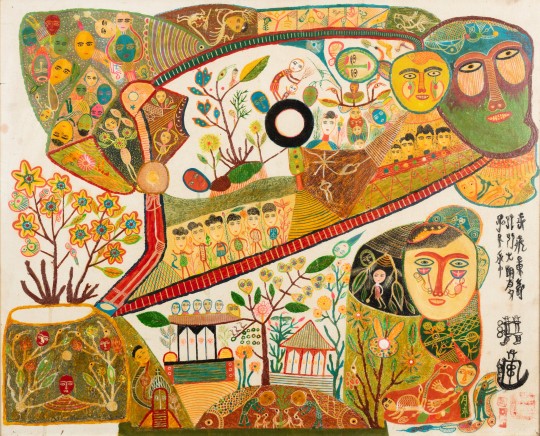
[eng tl under the cut]
Wanted to note down new vocab words I come across on the daily; After my appointment at the orthopedics, I went to a coffee shop with my dad and ordered a honeysuckle tea latte and a tomato mozarella panini, which was perfect for today’s weather (this winter’s first snow!).
Since the coffee shop was exhibiting a lot of local artists’ paintings, we started to talk about famous painters from Taiwan. In particular, we discussed Ju Ming and Tong Hong—Ju Ming was a sculptor most famous for his Tai Chi sculptures, having only passed away last year. His museum is very close to my grandpa’s gravesite.
Hong Tong was an artist popular in the 70s, known as “The East’s Picasso.” Having only started painting at the age of 50, his works were known for commonly featured the geometric shapes of primitivism. Although he quickly rose to become one of Taiwan’s central figures in the art world, he was quickly forgotten after choosing to live in seclusion, and died in relative poverty.
9 notes
·
View notes
Text
I Verbs in Chinese
A guide to some common I verbs in Chinese~
Ignore - 忽视 - hūshì
Illuminate - 照亮- zhàoliàng
Imagine - 想象 - xiǎngxiàng
Imitate - 模仿 - mófǎng
Improve - 改善 - gǎishàn
Implement - 实施 - shíshī
Include - 包括 - bāokuò
Incorporate - 合并 - hébìng
Increase - 增加 - zēngjiā
Indulge - 沉迷 - chénmí
Inform - 通知 - tōngzhī
Innovate - 创新 - chuàngxīn
Initiate - 启动 - qǐdòng
Inquire - 询问 - xúnwèn
Inspire - 启发 - qǐfā
Instruct - 指示 - zhǐshì
Interact - 互动 - hùdòng
Interrupt - 打断 - dǎduàn
Intervene - 介入- jièrù
Introduce - 介绍 - jièshào
Investigate - 调查 - diàochá
Invite - 邀请 - yāoqǐng
Involve - 参与 - cānyù
Invent - 创造 - chuàngzào
Invest - 投资 - tóuzī
#chinese#learn chinese#mandarin langblr#chinese langblr#chinese language#college#college life#student life#studyblr#study blog#study motivation#travel blog#student#slavic roots western mind#chinese verbs#chinese vocabulary#verb#vocabulary#langblr#languages
131 notes
·
View notes
Text
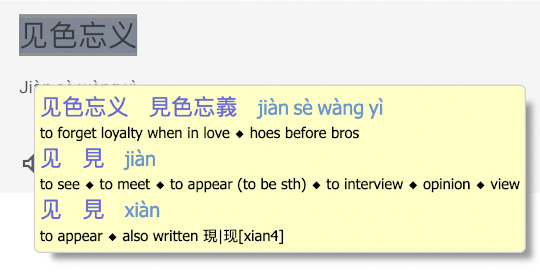
I fucking love 成语. Thanks @calystarose for letting me know about this one!
见色忘义 jiàn sè wàng yì - to forget loyalty when in love; hoes before bros
142 notes
·
View notes
Video
youtube
46 notes
·
View notes
Text
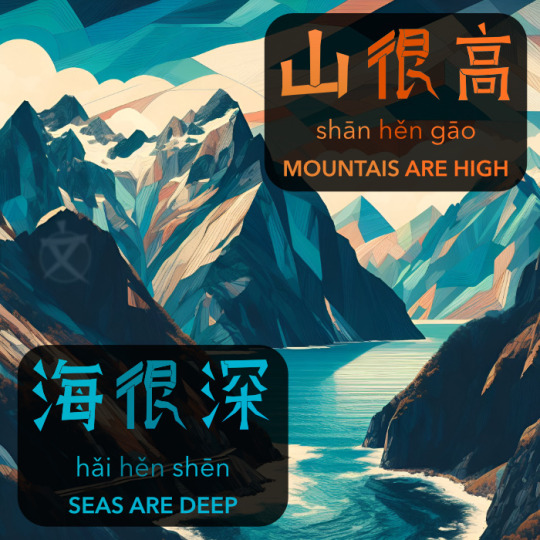
山很高,海很深 /shān hěn gāo, hǎi hěn shēn/
MOUNTAINS ARE HIGH, SEAS ARE DEEP
________
Beginner?
MAGIC PLAYBOOKS
Intermediate?
WORDPLAYS
FREE 12 DAY MANDARIN CHALLENGE
#chinese#mandarin#learn chinese#learn mandarin#chinese langblr#mandarin langblr#edublr#langblr#mandarin edublr#chinese vocabulary#mandarin chinese#chinese edublr#study chinese#learning chinese#learning mandarin#mandarin vocabulary#study mandarin#中文#汉语#chinese studyblr#mountain#mountains#sea#scenery#nature#daoism#dao
21 notes
·
View notes